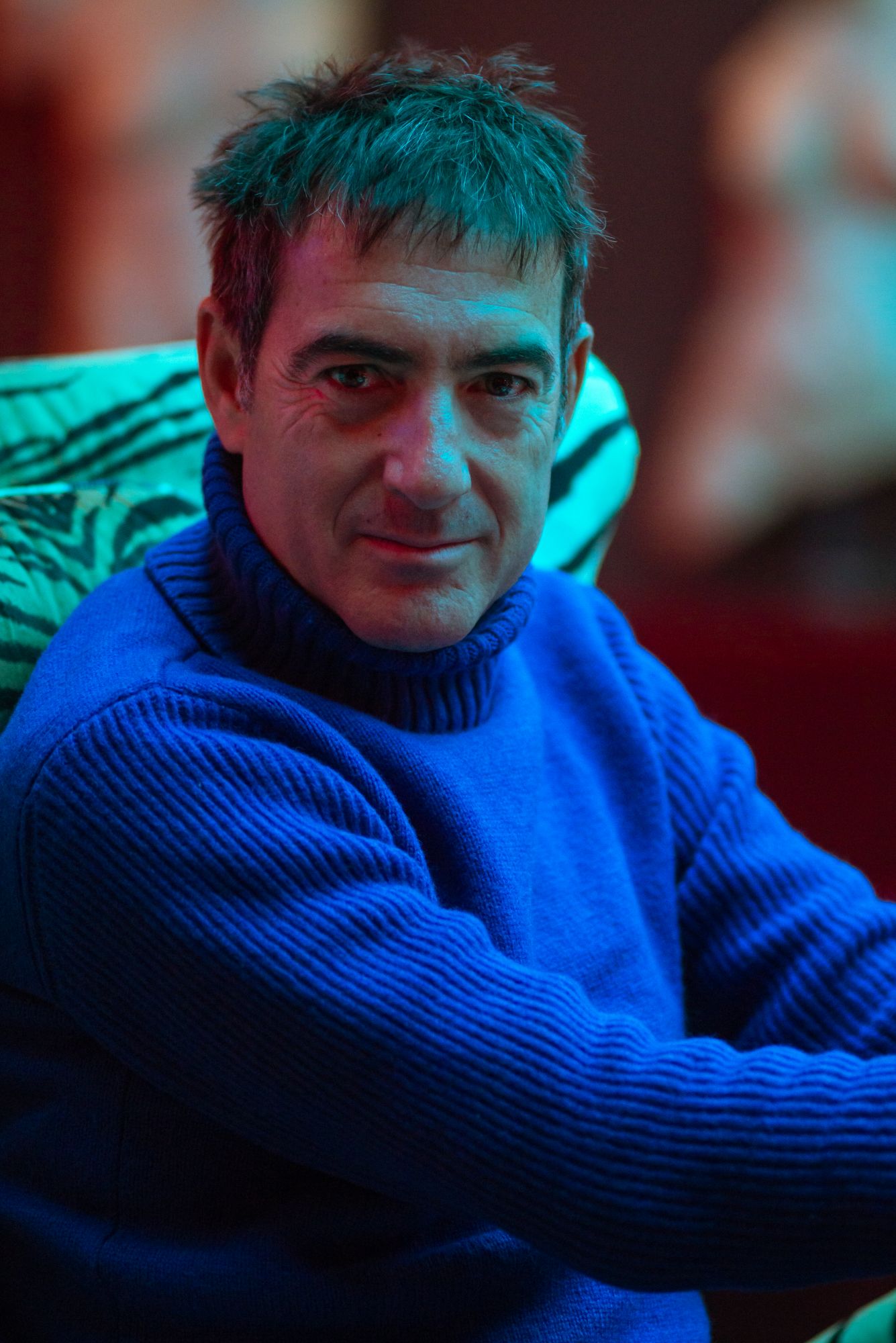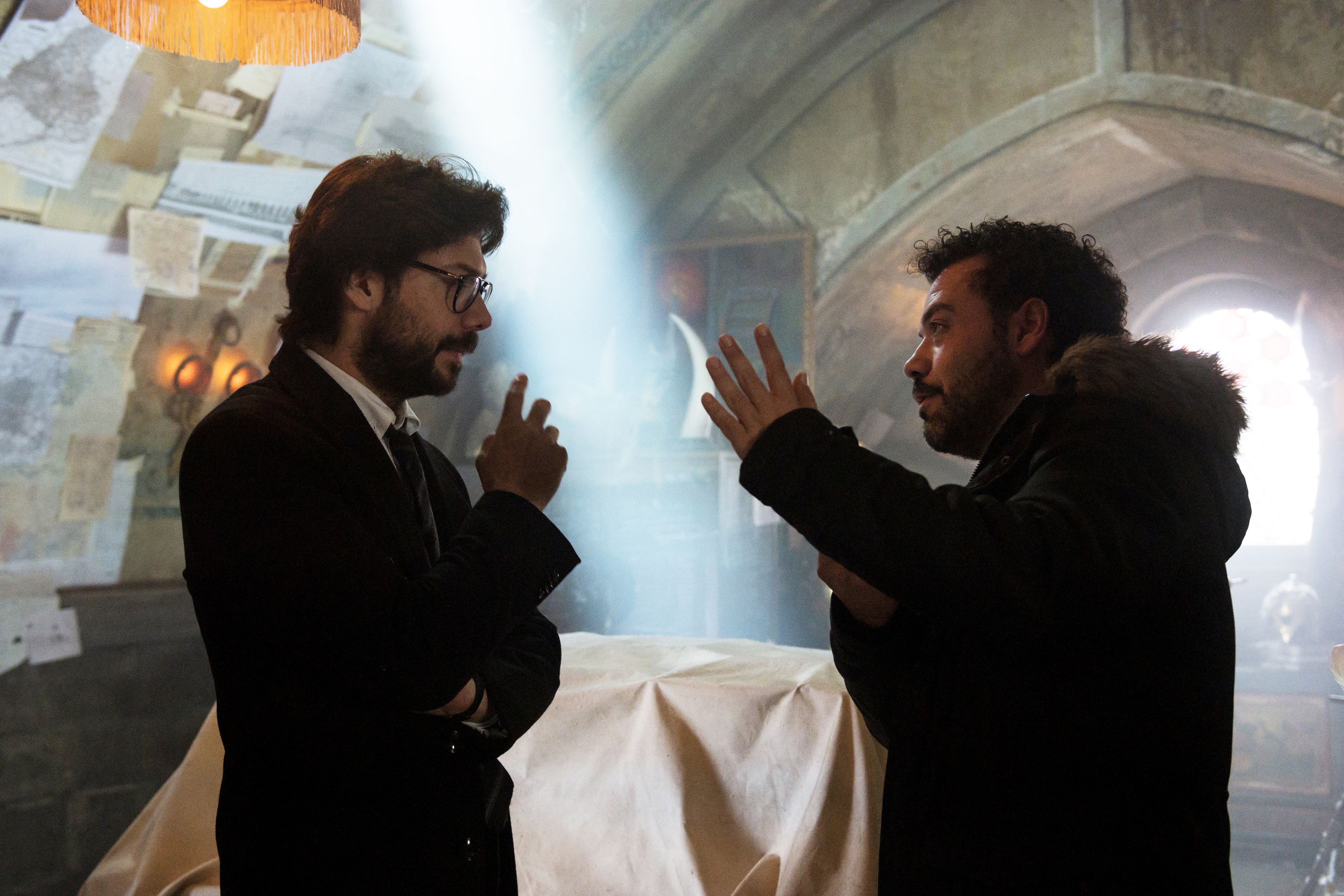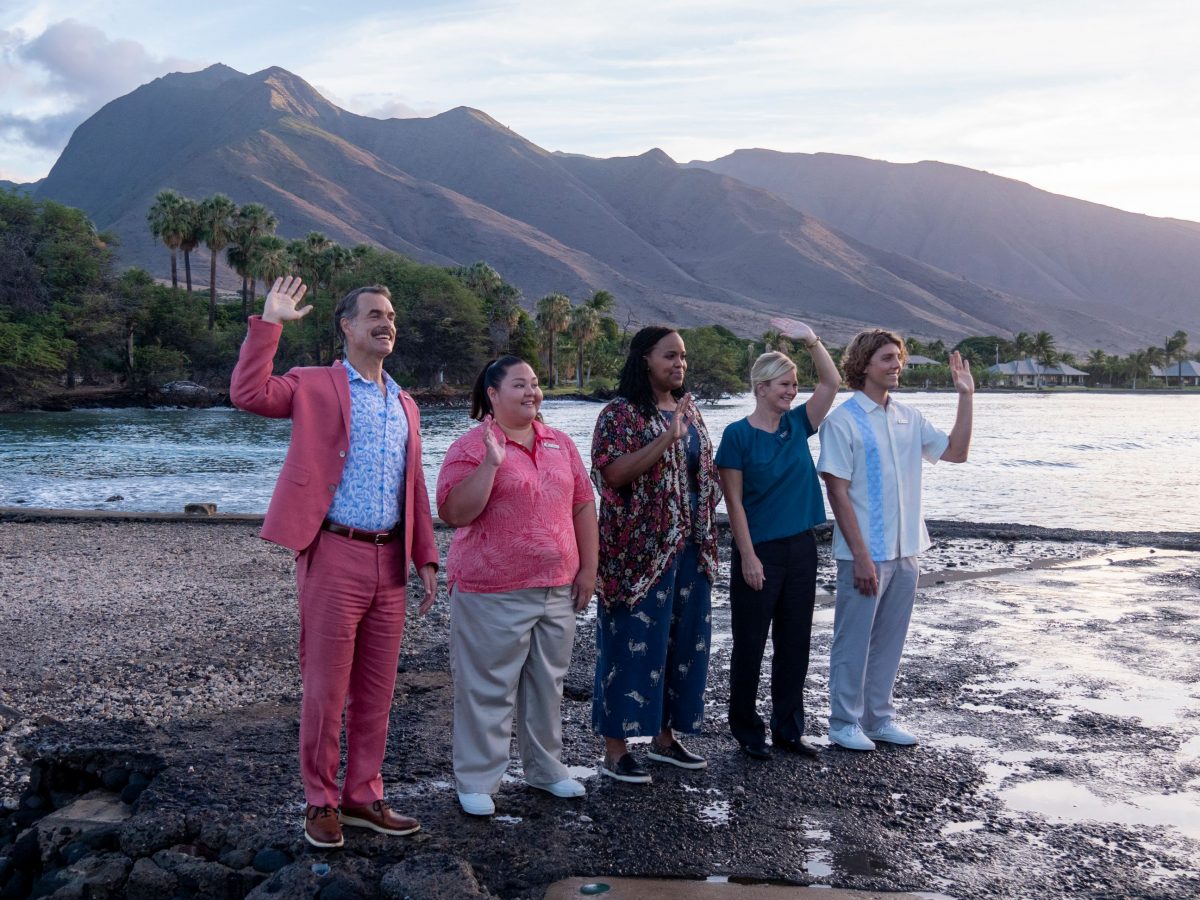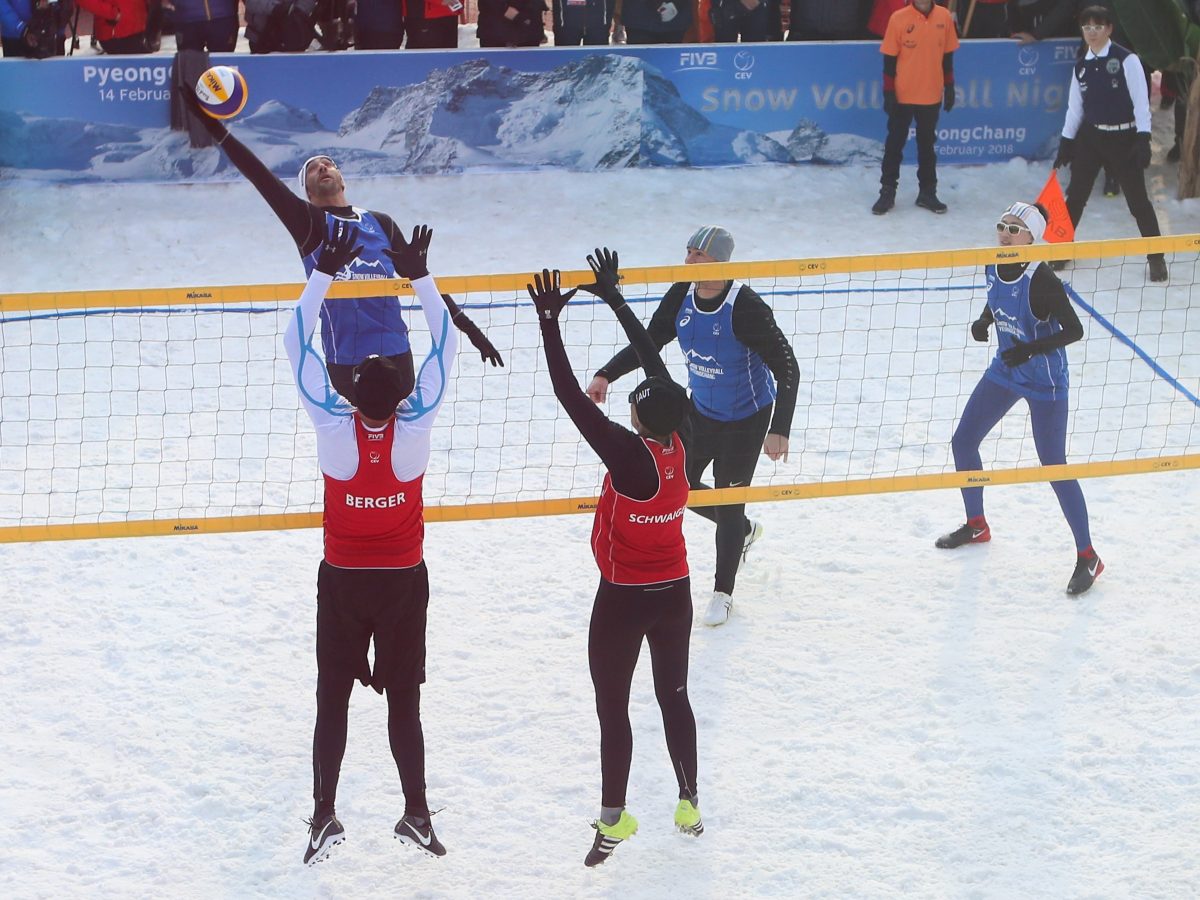Ahead of the much-anticipated debut of the first half of the final part of La Casa de Papel (Money Heist) on September 3rd, Esquire Middle East sat down for an exclusive one on one interview with the creator of the much beloved Netflix Original series about how he brought the show to an end.
Read the full conversation here:
Alvaro Morte, Pedro Alonso, and Jaime Lorente say goodbye to the series
Where did you begin with finishing this final batch of episodes? And after you finished the fourth part, did you know exactly where you were headed or did that come together as you started writing?
We did have an idea of how we were going to continue. Usually at the start, what we know is the end. But in the case of the fifth part, what happened in the final chapters is that what we had designed didn’t really work and we had to radically change the last chapter; in other words, we changed everything we had in mind about how the robbery ended because it was not working for us. It took 33 versions to do it.

In that critical moment, after five parts and two robberies of more than two thousand minutes of fiction, we faced the fact that the story that we wanted to tell was not working. And that’s the reason why in the end we had to do a lot of versions and changed everything. Generally, we write as we record so many times we know where the characters go, their arcs and we know the ending. But we write everything else on the spot, we discuss it as we go, and as we see how the series is turning out in post-production.
When did you know this would be the end?
I think we always had an idea or a fear—which is the fear that your series will wear out and will be devalued—as we continued to film more seasons. We always thought that we had to stop when the series was highly demanded, when it was still in its ‘golden age’. It seemed like that was just what we had to do with the series.
I believe that the fifth season is the most brutal from any other we have done – for many reasons, mainly, due to the levels we came to harass the Professor’s band, our most radical limits are in this fifth season.
.jpg)
Therefore, I believe that the anguish and anxiety of the viewer are also going to be at the limit in this last season. And this also allows us to blow everything up into big pieces, the things we had previously done allowed us to blow them up. It has really been difficult for us to finish it like this but, on the other hand, it is a satisfaction that the series is probably getting closure with its best season so far.
Did you, at any point, have regrets? I know you are someone who is very creative on the spot, you are always following new ideas as you go. When you think about it later, do you regret any of the decisions that you made in the first four parts?
We will always regret things because we are constantly making a lot of decisions. Writing is making decisions and writing sequences for an action series is making decisions constantly. Many of the decisions are probably made because we are ‘playing’. For example, the first and second seasons of La Casa de Papel were going to be only two seasons.
At that moment, we made very big decisions such as killing two fundamental characters, Moscow and Berlin, and perhaps we wouldn’t have done the same now because, for example, in that case Moscow orphaned a paternity line with Denver that was very important to us.
.jpg)
Actually, I think the series has worked well with the decisions we have been making. Perhaps the worst decisions have been sequences that do not work well, because we wanted to have a comical approach that later did not work or because – in some of the sequences – we did not manage to generate the most brilliant dialogues. It’s not that you regret it, it’s just that many times the series are imperfect because you have to write it all in 15 – 20 days.
Writing a series, incessantly, means that the production puts pressure on you and you have to present your script, it’s an unstoppable rhythm, you never stop shooting and we shoot with two units a day. it is a very dizzying pace that generates a lot of panic in the writer. Many times we don’t have enough time to be absolutely brilliant but, on the other hand, writing so close from the shooting days allows us to make changes as we observe what is needed during post-production, as I said before.
In the end, you have an absolutely instantaneous perception of the feedback and the agility to change the direction, to change characters that maybe have a comic vibe, a possible friendship or a romance. It is much easier if you do not have the entire series written. I think you can always make bad decisions, but regret nothing. In the end, the series is the sum of all your decisions, the good and the bad, and that’s your DNA.
When you finished part 2, you thought it was the end of the line, and end that you chose was a very happy ending. Approaching this new ending, did you have the same sort of philosophy as to where you wanted things to go, or did you change your philosophy on how you wanted the show to be completed?
In the second season, it is true that we wanted to have a happy ending and we managed to inverse the viewer’s perspective between the good guys and the bad guys. We had made the viewer feel that the thieves were the good side, and we emphatically saw that the viewer was with the thieves, so we wanted to make a happy ending.
In part four, I believe that the situation was more consistent with the new identity of the series, which intends to give, in very short periods of times, a very powerful feeling of happiness or empathic catharsis with the viewer, generating this complicity and a positive perspective from the viewer.

That’s what we always try to do because we believe that fiction, as it is today, with a viewer who watches so many hours of fiction and who is an expert, so we try to give him a constant bipolarity, a roller coaster ride where they are suddenly feeling satisfaction because of a happy ending and, suddenly, we surprise the viewer again, lowering his expectations.
This is something that happens constantly in LCDP. We play, therefore, with the spectator’s anxiety and also with his sensations. In the end, it is a hybrid genre that transmits different emotions throughout the same journey. We wanted to combine the positive feeling of recovering and rescuing Lisbon, with the negative feeling of stopping the Professor and this happens practically simultaneously.
I think this is La Casa de Papel, a constant feeling that the good and the bad are just around the corner and this makes the viewer watch, but also find the series addictive. Anything can happen in LCDP and I think it is good for the viewer to be in a state of stress, and a powerful addiction.
What was your emotional state when you finally finished this part?
There is a feeling of emptiness, as with almost every time we close a series because at that moment we feel we concluded. We had come to tell a robbery and we did it. Here in Spain, we did 15 episodes, for the international public there were 21 since the recording for this genre in Spain is 70 minutes long – now it is changing but a few years ago it was like that. It was greatly stressful to write those episodes and shoot them in practically 5-6 months. And in the end, you have a certain feeling of relief because I think we had never written or shot so fast, we had created a new company.
We were very young, we had no money, so we had to shoot twice as many constant days, so it was a relief to finish it but we felt that we had done something good, that at least it contributed to the genre, that it mixed genres, that changed the North American genre or North American/Anglo-Saxons literature of the perfect robbery, that we had generated a hybrid [genre] with black comedy, with romanticism… And suddenly we felt that it was over.
.jpg)
And so, two months after it was released on Netflix, what happened in Brazil began to happen, people got tattoos of the names of the Professor or Tokyo’s face. They began to dress up at the carnival in Rio de Janeiro. And suddenly, Netflix called us and we said, ‘well, this had to be like that’, but we have more stories to tell and we believed that the story could reach a larger audience even if it was very local.
In a way, it was an emotional sense of relief because it was a lot of stress for us as writers, but then also a great sadness because we felt we had something to tell. So, justice was served when Netflix called us.
After the reaction that the death of Nairobi got with fans, how do you want people to perceive this final part?
Firstly, to be consistent with the series, in the end they are a group of people who face a serious risk and among the rules of the game is to kill your characters or die in the exercise of the robbery. It’s a question of coherence, we killed three characters in the first round and we still had that idea open.
When a death occurs, the viewer experiences two totally different emotions, but they are part of a sensation that is also cathartic. At the end there is a moment of anger and we have noticed it because, well, the fans write us very angry messages. But on the other hand there is a great emotional sensation in the viewer, many people have told us that they cried, because they were their favorite characters.
.jpg)
That’s what’s happening when you kill a character, they [the viewer] experience the series in an absolutely radical way, they get involved, the emotional commitment they have with the series is gigantic. This is the great secret of why there are some series that drag a fandom phenomenon, and in the case of LCDP it is because they have an emotional connection with the characters and through that connection they live the journey, and the journey of death is a cathartic trip, it is a drama, but it is a drama that many like to live, they like to feel that emotion, they like to cry and there is enjoyment.
We all know that there are many viewers who like to see dramas, and we work with very hard dramas at times, and at the same time, we connect it to comedy or action, we work with this hybrid genre. But we do seek to move the audience and sink them emotionally, at least to make an emotional trip, and then bring them back up, to a re-satisfaction state with other moments such as Lisbon’s release. It is this constant intention to make the audience travel. When you do a pure genre you have a more neutral line, but what the viewer is demanding is to feel more.

15 years ago in Spain, the fiction genre was based on unwritten rules of the game and this meant that you could not kill your protagonist, the viewer knew when the protagonist was facing a danger, for example, hanging from a rope that is slowly breaking. The viewer knew, 15 years ago, that you were not going to kill his character, because he had a guardian angel who was the chain that said “no, calm down, this is just for you to live the emotion of death without death ”.
Now, we are experiencing the emotion of death with death and it is much more effervescent for the viewer to know that your character can die, there is greater anxiety in the viewer, we raise their levels of anguish and, somehow, the trip they make by watching television is the closest thing to real trips, to real emotions. In addition, we compress the time of the events a lot, so that this feeling that the viewer is constantly involved in the process generates an emotional journey throughout the chapters and throughout his characters, who begin to be his family due to the trips they have and by the bonds that they begin to develop with them.
Is this truly the end of the world of La Casa de Papel? Is there a chance you will continue the story in any spin-offs?
Right now I am finishing up the fifth season and I can’t take a break to think about what to write next. We are in a difficult post-production moment because we have designed this new season inside the war film genre, which has become quite complicated for us.

We have recorded 32-34 days on average per episode, that’s a lot for Spain but a lot also for the United States. It was a very complicated shoot, it is an extreme war genre and we are putting it together right now. I think we have to finish editing this season, watch it and determine if there really is an open door for a spin-off, or if we want to tell something more about any of the characters… But for the moment there is nothing in mind.
Translation: Romina Román




